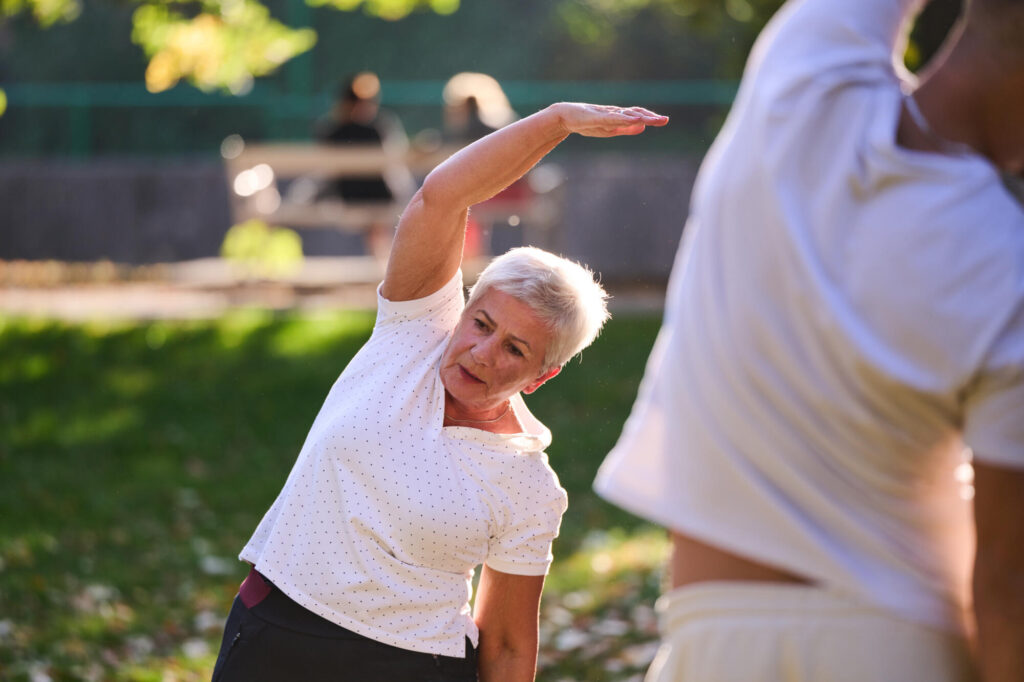Osteoporosis is a condition that makes bones weak and more likely to break. It is common in older adults, especially women. As people age, managing bone health becomes very important to prevent fractures and stay active.
The good news is that there are simple and effective ways to manage osteoporosis in seniors. Read on.
Get Checked Early
Finding osteoporosis early is one of the best ways to manage it. Seniors should get regular bone tests, like a bone density scan (DEXA scan), especially women over 65 and men over 70.
People with certain risk factors-like family history, previous broken bones, smoking, or low body weight-may need testing even earlier. Doctors can also use a tool called FRAX® to check how likely someone is to break a bone. Living in one of the top communities can help in osteoporosis prevention for older adults.
Eat for Strong Bones
A healthy diet helps keep bones strong. Seniors should get enough calcium and vitamin D every day. Calcium (1,200 mg daily) helps build bones, and vitamin D (800-1,000 IU daily) helps the body use calcium.
Good sources include dairy products, leafy green vegetables, and fortified foods. If needed, calcium and vitamin D supplements can also help. Don’t forget to eat enough protein and other nutrients like magnesium and vitamin K, which also support bone health.
Stay Active and Prevent Falls
Exercise is one of the best ways to keep bones and muscles strong. Activities like walking, tai chi, or light weightlifting help improve balance and strength. This lowers the chance of falling.
Simple changes at home-like removing loose rugs, adding grab bars, improving lighting, and using walking aids-can make a big difference. Some medications can cause dizziness, so seniors should talk to their doctor about any side effects.
Use Medications if Needed
If a senior has a high risk of breaking bones, medication may be needed. There are different types of drugs that help slow bone loss or help build new bone. Some common options are:
- Bisphosphonates (like alendronate or risedronate)
- Denosumab
- Anabolic medications (like teriparatide) in severe cases
The doctor will help choose the best treatment based on the person’s health and needs. Taking the medication as prescribed is very important for it to work well.
Healthy Habits Matter
Simple lifestyle changes can make a big difference. Seniors should:
Quit smoking
It weakens bones. Smoking reduces blood flow to the bones, which slows down the body’s natural bone repair process.
Limit alcohol
Too much alcohol can cause balance problems and poor bone health. Alcohol can also interfere with calcium absorption and some osteoporosis medications.
Stay at a healthy weight
Being underweight increases the risk of fractures. A low body weight means less bone mass, which makes bones more fragile and prone to breaks.
Good sleep, staying social, and staying active all support overall health, which helps with bone health too.
Keep Track and Follow Up
Managing osteoporosis is not a one-time thing. Seniors should have regular check-ups to track their bone health. This helps doctors see if treatment is working and make changes if needed. Seniors should also report any side effects or problems with medications.
Maintaining Your Senior’s Posture
Osteoporosis can be serious, but it can be managed with the right steps. Early testing, a bone-friendly diet, exercise, medication when needed, and regular check-ups all help reduce the risk of broken bones. With these simple strategies, seniors can stay strong, independent, and enjoy a better quality of life.
If you want to read more articles, visit our blog.






